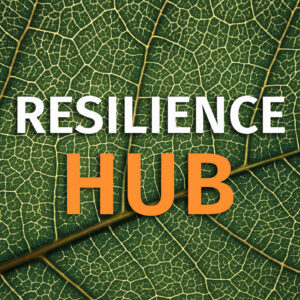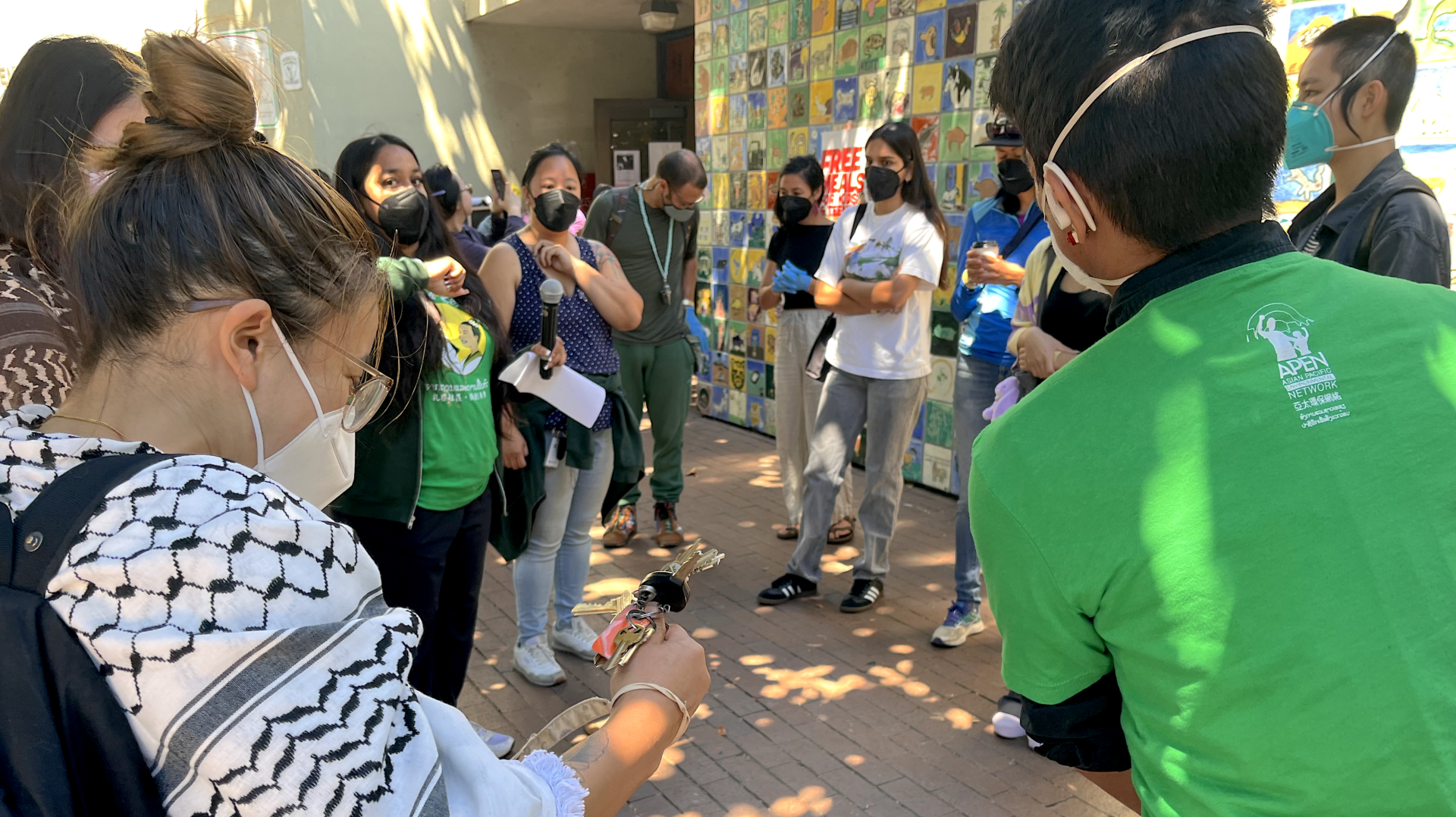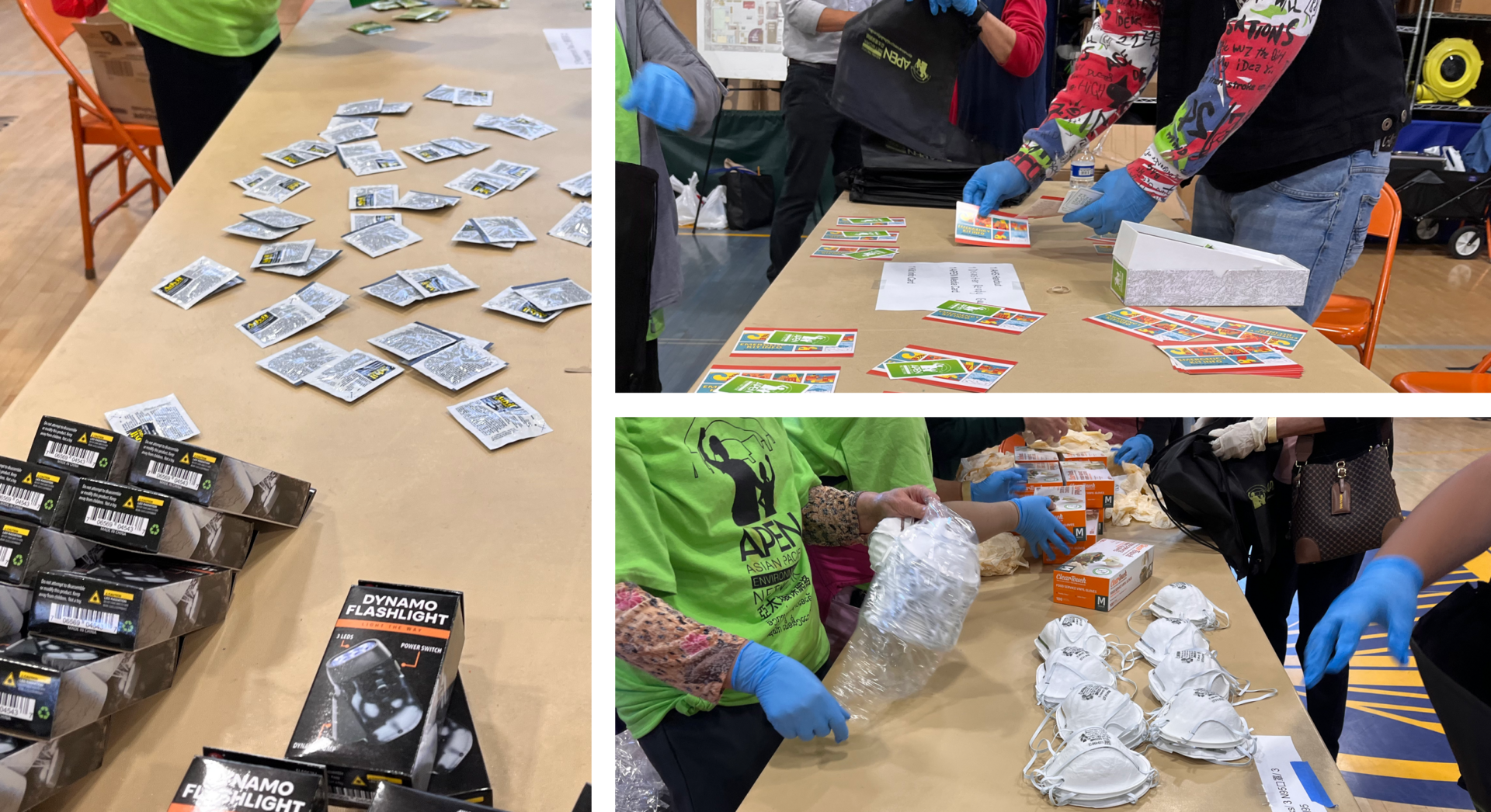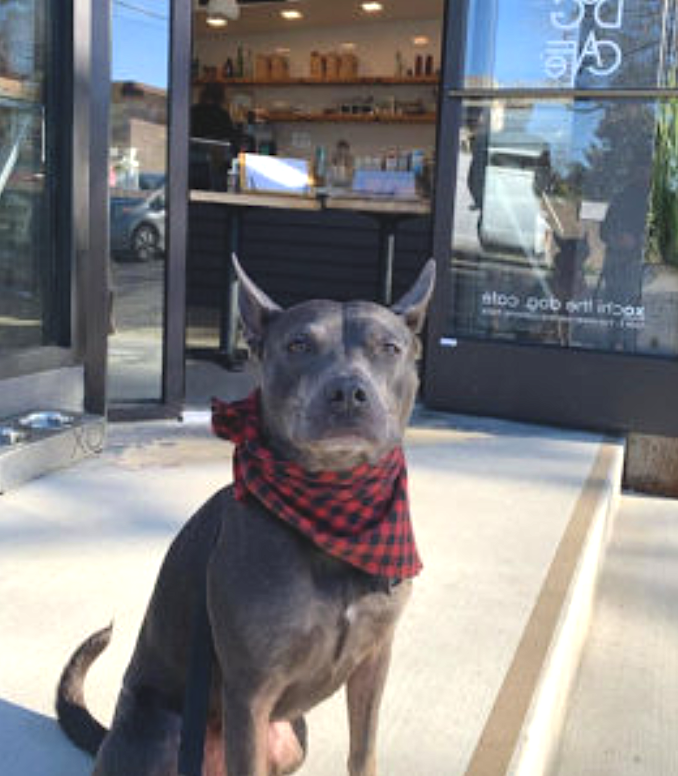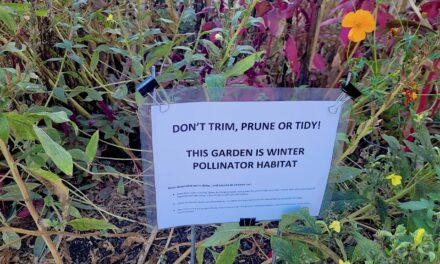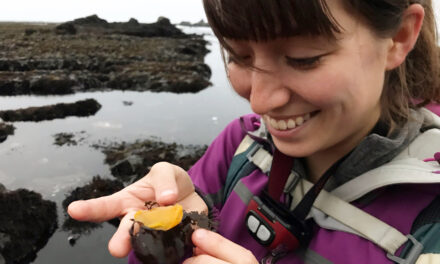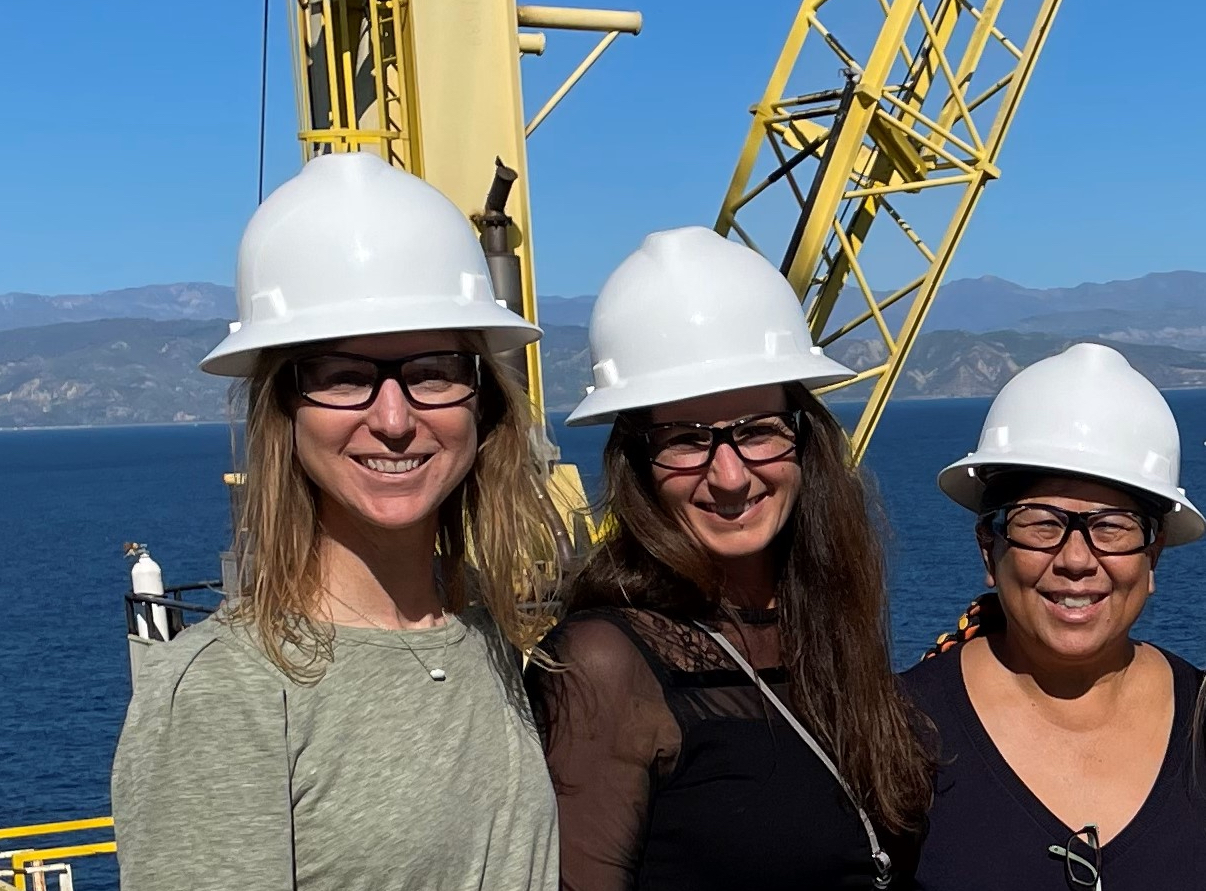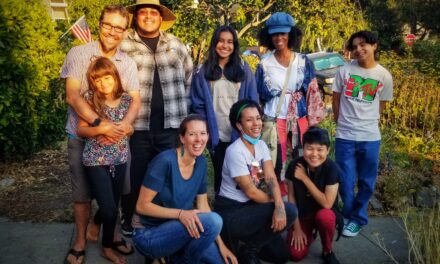Uncertainty Requires a Buffet of Resilience Choices
On August 14, over 70 community members gathered outside of Oakland Chinatown’s Lincoln Square Recreation Center to assemble hundreds of emergency resilience kits, courtesy of the nonprofit Asian Pacific Environmental Network.
“How many of you have eaten at a buffet?” asked the APEN coordinator. The intergenerational audience of volunteers—from children fiddling with toys to elders picking at the remnants of their catered lunch—raised their hands. “Well this will be like a buffet, but you have to pick everything,” she explained. Off to her side, a translator repeated her instructions in Cantonese for a large group of Asian elders, most of whom were wearing bright green APEN shirts. For the rest of the afternoon, the Lincoln Center echoed with bouncy hip hop and peals of laughter, as a rotating assembly line of community volunteers stuffed drawstring bags with Advil, peppermint tea, medical-grade face masks, COVID tests, and other supplies. All the volunteer groups took home 500 kits at the end of the day for their communities.
“Our communities are primarily monolingual, immigrant, working-class renters who live on the front lines of environmental injustice – heavy industrial pollution, high traffic corridors, unsafe housing, and unsafe workplaces, and climate change,” explains Shina Robinson, APEN’s resilience hubs manager. With plans to add new solar panels, backup battery power, and HVAC systems, the long-planned Lincoln Center resilience hub will act as a safe place for people to turn to during wildfires, heat waves, or other extreme weather challenges.
Events like the organization of emergency supply kits are designed to get the community on board with the hub’s daily programming—youth events, food distribution, climate readiness planning, CERT training—and assemble a coalition of different neighborhood groups. Representatives from the Friends of San Antonio Park, Fruitvale East Oakland Collective Land Trust, Richmond’s RYSE Youth Center, and many more showed up to discuss both progress on this one hub – 28 years in the making — and possible directions for the future. Robinson says: “It’s taken community organizations to steward that process and create a consistent campaign around it.”
Other Recent Posts
Building Sustainably with Mass Timber
This building method can help clear forests of smaller trees that burn easily while also reducing the carbon footprint of new homes and offices.
Hardscapes That Filter Rain
Heavy rain can overwhelm storm drains and pollute waterways, but materials like permeable pavements help filter runoff and prevent flooding.
The Gray-Green Alchemy of Baycrete
Baycrete is a nature-based hybrid of concrete, shell, and sand designed to attract oysters and create shallow water reefs in SF Bay.
Tools Tweak Beaver Dams
Humans find ways to co-exist with beavers, tweaking dams to prevent flooding and create more climate resilience.
Hopes and Fears for Sierra Snowpack
February’s drought and deluge confirms that uncertainty may be a given for California snowpack, western water supply, and wildfire risk.
Errands by E-Bike
Electric cargo bikes are climate-friendly car replacements for everyday activities, from taking the kids to school to grocery shopping.
A Rare Plant Tough Enough to Save the Future Bayshore
Sea-blite can thrive in adverse conditions, buffer shores from waves, hold sand and soil in place, and clamber up eroding cliffs.
Reforming Rules to Speed Adaptation
Bay Conservation and Development Commission to vote early this year on amendments designed to expedite approval of climate projects.
Warner Chabot Shifts Gears
After 11 years at the helm of the Bay Area’s leading science institute, its leader moves back into the zone of policy influence.
Is Brooklyn Basin Emblematic of Regional Development Vision?
The 64-acre waterfront development adds thousands of new housing units to one of the world’s most expensive places, but questions remain about its future.
In 2020, Oakland City Council passed their Equitable Climate Action Plan, which calls for the construction of three resilience bubs by 2030. The Lincoln Center is currently the only location with imminent construction plans, after securing a $9.25 million grant from the California Department of Food and Agriculture last year. “We already have a database of buildings that have the space and infrastructure to be potential resilience hubs,” says Nick Kordesch, energy programs manager for the City of Oakland. “The next step is community outreach to find out which ones are trusted by the residents around them. Resilience hubs require collaboration with community organizations and across many city departments – it’s a holistic type of project.”
However, the funding for smaller local resilience efforts is piecemeal and scattershot, according to Susan Silber, program director of the nonprofit advocacy group Collective Resilience who has been catalyzing resilience hubs for the past several years. Not every hub has to be big or even full service, she says. “There are many places in our community that already operate as informal resilience spaces, offering some services everyday and some during emergencies. What we need now is a coordinated network.”
Miya Sommers, coordinator for the Friends of San Antonio Park, agrees. The San Antonio neighborhood, which is not easily accessible by BART, struggles whenever heat waves or poor air quality days occur. “For us, climate catastrophe shows up in multiple ways on a daily basis,” she says. “It’s exciting that the folks at Lincoln Square Park are sharing their resources, because the state gives out small slices of the pie but doesn’t actually help us access that funding or navigate institutional barriers.” Sommers’ hope is that over the next few years, they’ll be able to turn the San Antonio local library into a smaller drop-in resilience hub.
Other East Bay organizers are looking to leverage places of worship, schools, and community-based organizations for climate resilience. In San Leandro, Temple Beth Sholom is building an off-grid, solar-based power system for the neighborhood, while the Bethel Community Presbyterian Church acts as a key food distribution center to nearby schools and BIPOC populations. In East Oakland’s Clinton neighborhood, Xochi the Dog Cafe doubles as a coffee joint and a climate resilience hub that hopes to offer emergency shelter, disaster preparedness classes, and a community garden.
“A more decentralized network of hubs of all types could literally save lives, and honor the work of existing sites already doing the resilience work,” says Silber. “Building a network has to be a community-driven process, which is democracy and equity at its best.”



